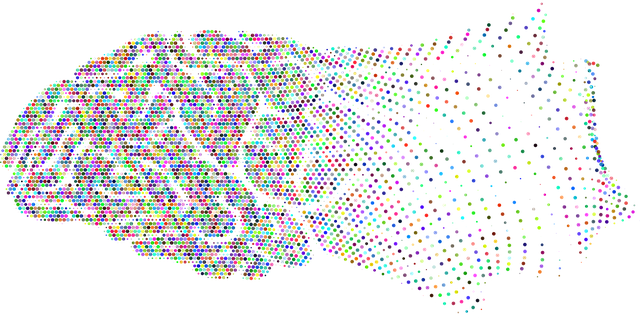Greenwood Village Trauma Therapy offers specialized Crisis Intervention Teams (CITs) for swift emotional crisis support, promoting community resilience and therapist self-care. Their holistic approach combines evidence-based practices for trauma healing, positive thinking, and enhanced social skills. Through comprehensive training with practical exercises, simulations, and role-playing, mental health professionals gain confidence in real-world scenarios. Continuous evaluation ensures the program's relevance, tracking on-the-ground interventions for effective crisis response and mental health support in Greenwood Village.
“In today’s complex social landscape, effective crisis intervention is more crucial than ever. This article explores the vital role of Crisis Intervention Teams (CITS) in modern support systems and delves into specialized training programs, such as the Greenwood Village Trauma Therapy Approach. We examine key components for successful CIT training, emphasizing real-world scenario preparation for mental health professionals. Additionally, we discuss measurement strategies to ensure continuous improvement in crisis team readiness, highlighting the impact of programs like Greenwood Village.”
- Understanding Crisis Intervention Teams: A Necessity in Modern Support Systems
- The Greenwood Village Trauma Therapy Approach: Specializing in Critical Response
- Essential Components of Effective Crisis Intervention Training Programs
- Preparing Mental Health Professionals for Real-World Scenarios
- Measuring Success and Continuous Improvement in Crisis Team Training
Understanding Crisis Intervention Teams: A Necessity in Modern Support Systems

In today’s complex and demanding world, Crisis Intervention Teams (CITs) have become a vital component of modern support systems, especially in communities like Greenwood Village where trauma therapy is a priority. These specialized teams are designed to swiftly respond to individuals experiencing severe emotional crises, providing immediate assistance and preventing potential harm. CIT training programs empower mental health professionals with the necessary skills to navigate turbulent situations effectively.
By equipping therapists with tools for de-escalation, crisis management, and risk assessment, these training initiatives enhance their ability to promote emotional well-being. Moreover, understanding the nuances of crisis intervention fosters a culture of self-care routine development among professionals, ensuring they can continue offering support without compromising their own mental health. This holistic approach, which includes risk management planning, is crucial in building resilient communities where citizens have access to prompt and efficient psychological aid.
The Greenwood Village Trauma Therapy Approach: Specializing in Critical Response

The Greenwood Village Trauma Therapy Approach is renowned for its specialized focus on critical response and trauma healing. This innovative program recognizes that effective crisis intervention requires a deep understanding of trauma dynamics and advanced coping strategies. By prioritizing emotional resilience, the approach equips individuals with robust tools to navigate distressing situations. Through a combination of evidence-based practices, the Greenwood Village method fosters positive thinking and enhances social skills training, enabling participants to manage mood effectively in high-pressure environments.
This tailored training goes beyond traditional crisis intervention by addressing the psychological scars left by traumatic events. It prepares team members to offer compassionate support while promoting sustainable recovery. The program’s holistic perspective encourages participants to embrace a growth mindset, enhancing their ability to adapt and respond to crises with composure and empathy.
Essential Components of Effective Crisis Intervention Training Programs

Effective crisis intervention team training programs are multifaceted and crucial for equipping professionals with the skills to navigate challenging situations. At Greenwood Village Trauma Therapy, we identify key components that contribute to successful outcomes. Firstly, these programs should incorporate a mix of theoretical knowledge and practical exercises, allowing trainees to understand crisis dynamics while developing hands-on experience in managing real-life scenarios.
Secondly, compassion cultivation practices play a pivotal role. Training must emphasize the importance of empathy and active listening, as these skills foster secure connections with individuals in distress. Additionally, integrating mental wellness coaching programs within the curriculum enables participants to explore their own emotional resilience and manage stress, enhancing their ability to support others effectively. Through such comprehensive approaches, Greenwood Village Trauma Therapy ensures that crisis intervention teams are well-prepared to offer compassionate and competent care.
Preparing Mental Health Professionals for Real-World Scenarios

Effective crisis intervention team training programs prepare mental health professionals to face real-world scenarios with confidence and skill. These programs simulate high-stress situations common in emergency departments, schools, and community settings, allowing practitioners to hone their assessment, de-escalation, and communication strategies. At Greenwood Village Trauma Therapy, for instance, trainees learn not just theoretical responses but practical techniques for managing acute crises, fostering emotional healing processes, and coordinating care among multidisciplinary teams.
The curriculum often emphasizes evidence-based practices that enhance stress management and promote resilience in both the practitioners and those they serve. By engaging in role-playing exercises and receiving feedback from experienced facilitators, mental health professionals gain proficiency in recognizing subtle cues of distress, providing immediate support, and connecting individuals to appropriate resources. These hands-on experiences ensure that when faced with a real crisis, they are prepared to deliver compassionate, effective interventions that contribute to positive emotional healing outcomes.
Measuring Success and Continuous Improvement in Crisis Team Training

Measuring success and driving continuous improvement are vital components of effective crisis intervention team training programs. At Greenwood Village Trauma Therapy, we employ a multi-faceted approach to assess the impact of our training initiatives. This involves collecting feedback from participants through post-training evaluations, which gauge their satisfaction and perceived growth in crisis response skills. By analyzing these responses, we identify areas where our programs excel and pinpoint aspects that require refinement.
Additionally, we track the real-world application of learned techniques by monitoring participant engagement in on-the-ground crisis interventions. This practical implementation is further supported through follow-up sessions where trainees share their experiences and reflect on how the training has enhanced their ability to provide effective support for individuals facing mental health crises, including anxiety relief and resilience building. This holistic evaluation ensures that our Mental Health Education Programs Design remains relevant and impactful, continually contributing to the development of robust crisis intervention teams.
Crisis intervention team training programs, such as those offered by the Greenwood Village Trauma Therapy approach, play a vital role in equipping mental health professionals with the necessary skills to navigate and respond effectively to critical situations. By focusing on real-world scenarios and incorporating essential components of effective training, these programs ensure that crisis teams are prepared to deliver timely and compassionate support. Continuous improvement, measured through various evaluation methods, is crucial to enhancing the impact and success of crisis intervention initiatives.












